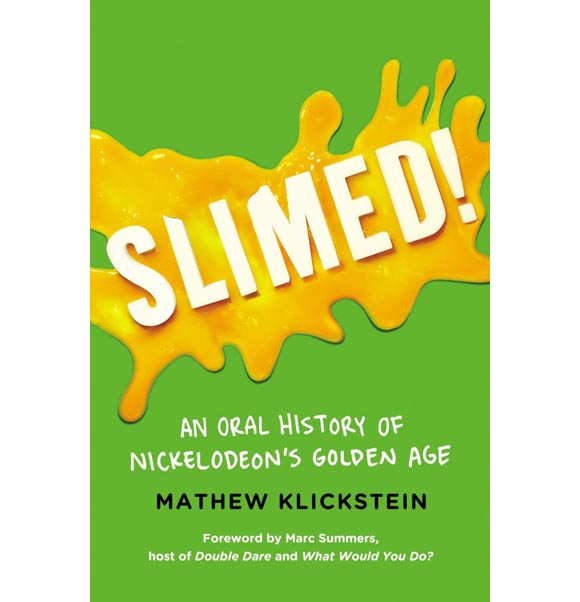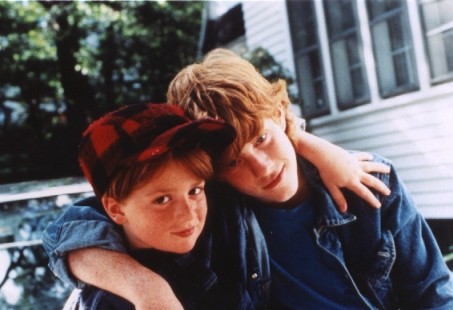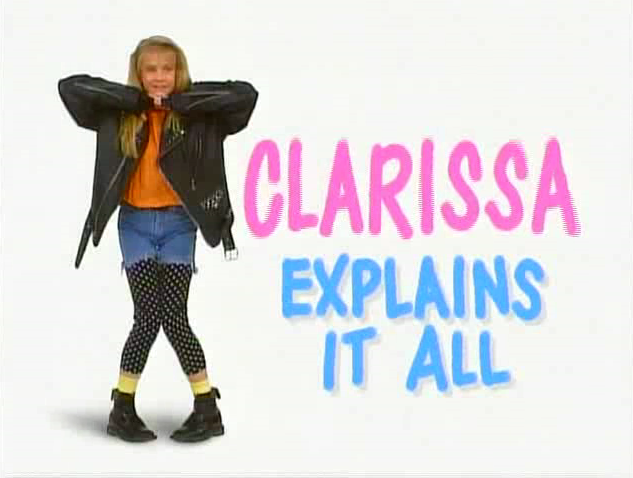Five More Reasons You Should Be Mad At Mathew Klickstein
 By now, you've almost certainly heard about the bizarre, offensive interview that the author of the new book Slimed!, a history of the early years of kids' cable network Nickelodeon, did on Flavorwire. If you haven't, here's the original interview.
By now, you've almost certainly heard about the bizarre, offensive interview that the author of the new book Slimed!, a history of the early years of kids' cable network Nickelodeon, did on Flavorwire. If you haven't, here's the original interview.
Sadly, racist and sexist drivel like this is all too common in the world of pop culture nerds. That's part of why I usually don't comment on it. Most times, I'm content to let other people who share my feelings on the subject do the talking. But this case goes beyond just the usual ignorant garbage.
Should we be mad at Mathew Klickstein because his views on race and gender are vile? Absolutely. But there's a whole slew of other things he's done in this single interview that shouldn't be ignored.
1. He can't make a consistent argument
The idea that a character should be Caucasian unless the show is entirely about the character being from another racial and cultural background is loathsome. Klickstein's inability to make this terrible argument without repeatedly contradicting himself is just icing on the insult-to-the-reader's-intelligence cake. For example, what does Klickstein think about people writing characters who are a different race than the writer?
I was talking with the guy who wrote for DC, and he made a really good point: Why does someone who’s making something about a black person need to be black? Why does someone making a show about an Indian person need to be Indian? Why does someone making a show about women need to be a woman? If you’re making something about an alien, you don’t need to be an alien to do it.
But then:
But the people who are making [current Nickelodeon show *Sanjay and Craig*] are not [Indian]. ...I just don’t understand why they feel that they need to do that. Why not have it be Indian creators doing it, and have it more about the Indian culture and Indian-American culture?
Same interview, just two questions later, completely opposite position.
Earlier in the interview comes another contradiction, this time on how a character's race should be determined:
...[Adventures of Pete & Pete] happens to take place in the suburbs of New Jersey, you know, it’s a whitewashed area!
I can understand the argument that Pete & Pete does not have a very diverse cast because of where it's set and (though Klickstein neglects to say it) that the setting is an important part of the show. And while this doesn't come up in the interview, I get that it can be tough when somebody is criticizing a show you like for any reason. Sometimes you feel like you have to defend not just the show, but yourself for still liking the show.
But then, in the same answer:
I think it’s worse when they shove [diversity] in there. Sanjay and Craig is a really good example, which funnily enough is written in part by Will McRobb and Chris Viscardi from Pete & Pete. That show is awkward because there’s actually no reason for that character to be Indian — except for the fact that [Nickelodeon President] Cyma Zarghami and the women who run Nickelodeon now are very obsessed with diversity.
If Sanjay shouldn't be Indian because there's "no reason" for him to be, what race does Klickstein think he should be? I'm betting you can guess.
So that argument about how Pete & Pete is low on non-white characters because of where it's set and the importance of that setting to the show? Completely pointless. Because even if that show had a completely different setting, the cast would look exactly the same under Klickstein's formula.

2. He's not articulate about the shows he likes
Klickstein obviously likes Pete & Pete, as well he should. It's a really great show and I would say that even if I didn't fear that Smalerie would disown me if I said otherwise. I like the show. Smalerie loves it. She's also great at explaining why the show is good. She'll cite specific episodes and discuss the feelings and time of a kid's life that the show captures so well. Hearing people talk about things they're passionate about is one of my favorite ways to spend time. I feel like I gain a whole new understanding of and appreciation for that thing they love.
What does Klickstein have to say about his favorite show?
The reason Pete & Pete does so well is it’s the best show from that era. It’s the best show from that network! Hands down: the way it looked, the music, the fact that they got all these really interesting cameos...
None of this gives me a better understanding of why Pete & Pete is a good show. Klickstein lists some elements of the show, but there's no detail on any of them or how they contribute to making it good television.
It's even worse when he applies it to his anti-diversity argument:
Some of these other shows — My Brother and Me, Diego, and Legend of Korra — it’s great that they’re bringing diversity into it now. Fantastic. But you know those shows are not nearly as good as Ren and Stimpy, which was made by all white people! Or Pete & Pete, which was all white people! I’m not saying white people are better at it or anything, I’m just saying that part of it doesn’t matter.
Comparing Ren and Stimpy to Legend of Korra is like comparing apples to jet engines and Klickstein makes no effort to explain why he believes the shows he likes are better. He operates from the assumption that everyone agrees with him. Being able to speak articulately about why these shows and this era were special is a crucial part of writing and promoting a book on the history of Nickelodeon. If Klickstein can't explain what makes his favorite shows great, he might not be the best person for the job.
3. He's wasting a great idea
I want to read a book about the history of Nickelodeon. I would love to learn about the decisions made in Nickelodeon's formative years and hear fun behind the scenes stories from the individual shows. But now, I can't read this book. Between his views and his inability to put together a cogent argument or analyze what makes a TV show work, I don't feel like Klickstein is the guy to tell me the Nickelodeon story.

4. He's an ingrate (when it comes to women who helped him)
Klickstein has equally ugly views on women and spends parts of the interview dismissing the fan interest in Clarissa Explains It All and relating the difficulties of doing standup about how hard it is to be a white guy. Here's what he has to say about his experiences in the publishing industry):
You might not like this or care, but it’s very hard to be a man in the publishing world. No one talks about that. My agent: woman. My editor: woman. My publicist: woman. The most successful genre is young adult novels — 85% of which are written by women.
Klickstein's agent, editor, and publicist aren't making it hard for him to succeed in publishing as a white man. They're the people who helped him get this book out. They're also the people who will now have to do damage control and explain to their bosses why all the press for the book they've published is now going to be focused on the author's racism and misogyny.
5. He's making it harder to have a smart conversation about these topics
Race and gender in media are sensitive subjects. It's not easy to have conversations about them, particularly if you're not one of the people directly affected by these media portrayals. But they're conversations worth having. I want to talk about whether the diversity of a show should be reflected in the writing staff or - in the case of animation - the voice actors. I want to have a discussion about characters whose race or gender is central to their stories versus characters who happen to be of a particular race or gender. I want to have these conversations not because I have the answers to these questions, but because I don't and talking abut it can help me get closer to those answers.
Good, if difficult, conversations can come out of the Klickstein interview. But Klickstein's views themselves don't lead to good conversation. When you lead with ideas like "it's really hard being a white man" or "TV characters should be white by default," it just ends in a shouting match. There's not much to say beyond "That's horribly racist." A sane and serious talk about these issues requires a fresh start.
